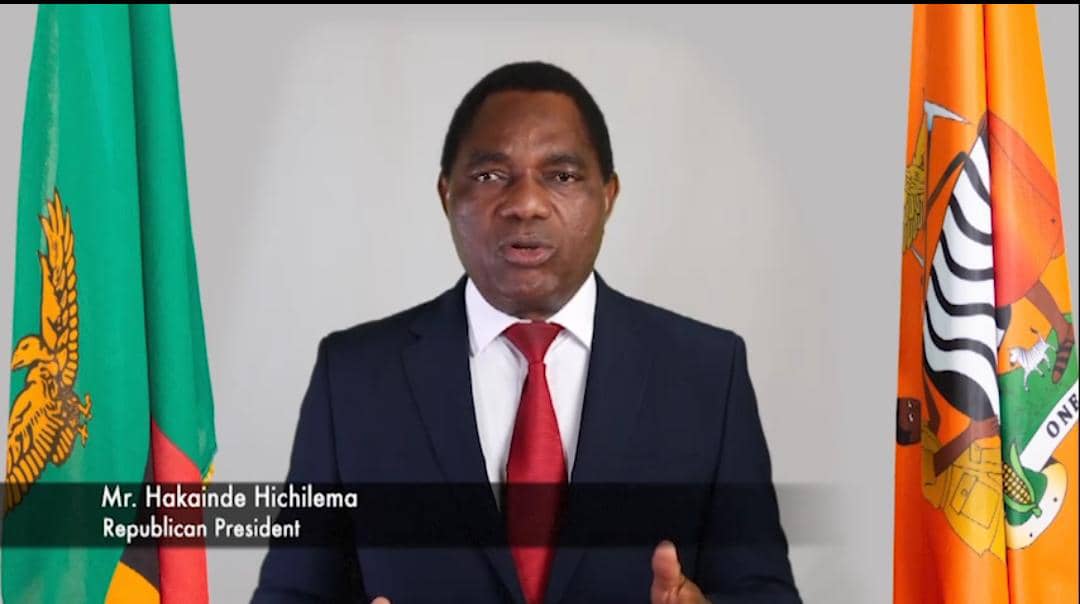
Lusaka, Monday (May 20, 2024)
Southern African Institute for Policy and Research (SAIPAR) Senior Research Fellow, Dr. O’Brien Kaaba, says Zambia must reorient the state so that Law becomes a tool for citizens empowerment rather than their oppression.
Dr. Kaaba who is also a University of Zambia (UNZA) Lecturer and Assistant Dean in the School of Law, said under colonial administration, law was used as an instrument of managing and controlling the people and not as a tool of empowerment and limiting Government.
This came to light during a Webinar under the topic: Exploring Practical Steps for Zambia to Achieve a Durable Constitution, hosted by SAIPAR and News Diggers Newspaper.
The Webinar attracted distinguished Experts such as Constitutional Making Process Expert, Professor Muna Ndulo, and Chapter One Foundation Executive Director, Linda Kasonde, among others.
“To have a durable Constitution, you must pay attention to the design of the Process. Without a credible Process, you are bound to fail. We should find a way of how we can coexist as diverse groups in society. That diversity must be mirrored in the composition of the body driving the Process be it a Committee of Experts or whatever name you are going to call the group to steer the Process. The other thing is the nature of the legal system we inherited as a Country. The colonies were basically command based legal systems. Law was used as an instrument of managing and controlling the people not as a tool of empowerment and limiting Government. Zambia must reorient the Law so that it becomes a tool of empowerment,” he said.
The Legal Expert said the consequence is that the Constitution is interpreted in an illiberal manner to conform to pre-existing order.
“Instead of being transformative, the constitution conforms to the old order. Further, the Constitution Making Process should take into account that as a result of the history and past illiberal reforms that went into consolidating and centralizing political power, there is a deficiency in state legitimacy. There is less reverence for the state, except to the extent that people treat the state as a milking cow. The design of the Process should take into account the need to resolve those problems. The Constitution is not just a tool for limiting Government but is also a tool for taking the Country to where you want it to go,” he said.
He said there is need to look at the Constitution as a transformative tool for what Zambia should look like in future.
“That aspiration should inspire us to design a Constitution that should take us to the future we desire,” he said.
Dr. Kaaba said there is need to develop an inbuilt mechanism for handling Constitution Making Process disputes to avoid using conventional courts.
“Commenting on specific issues of design, is the need for the issue of dialogue and putting in place mechanisms for resolving disputes that arise in the Constitution Making Process. That is one issue past Processes have been overlooking. As a result of that, conflicts in the Constitution Making Process end up being resolved by the regular courts. Jurisprudence all the way from the Nkumbula case in 1972 to the recent Bill 10 judgment show that our Zambian courts are incapable of steering the Country in the right direction around issues of Constitution Making. We should not leave this to chance but develop an inbuilt mechanism for handling Constitution Making Process disputes. From the Kenyan Constitution Making Process, we learn how that could be handled including how Constitution Making Expert, Professor Muna Ndulo, referred to how disputes were resolved in South Africa through dialogue and consensus building within the process,” he said.
The SAIPAR Senior Research Fellow said the Constitution Making Process should not be open-ended but time bound and spearheaded by recognized experts, especially on drafting technical provisions.
“The role of experts in Constitution Making Process cannot be overstated,” he said.
He added that Zambia should address structural issues in the Constitution by working on the system itself as opposed to the symptoms of the failed system.
“The goal of the Constitution Making Process concerning Zambia, I hear some sections of society that say we should just cure the lacunas in the Constitution but that is not the issue because in my view it is not about the language in the Constitution but structural issues that need to be attended to. Without addressing structural issues in the Constitution, the problems will still come back even if we draft the Constitution in perfect English language. For example, if we had a competent Constitutional Court, issues of interpretation would not have arisen. That shows you that we have a problem with the structures so we have to work on the system itself and not the symptoms of the failed system,” he said.
Dr. Kaaba also said the language the Constitution is written in matters in making it accessible.
“The current trend is that the Constitution should be drafted in plain and simple language because it is a people’s document. It should be drafted in such a way that an average citizen would be able to understand because it is not for Lawyers only. The people must be able to understand it to make use of it,” he said.



Very interesting details you have noted, appreciate it for posting.Raise your business